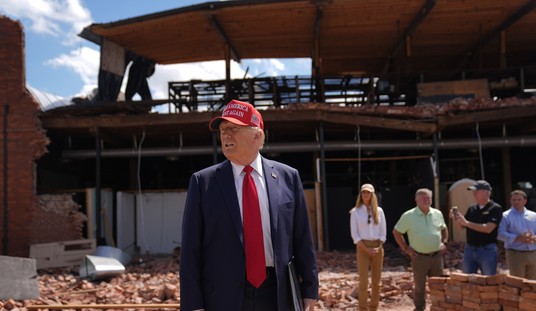In 2021, Anthony Fauci, then director of the National Institute of Allergy and Infectious Diseases, and Sen. Rand Paul (R-KY) got into a heated exchange over whether the National Institutes of Health funds gain-of-function research at the Wuhan Institute of Virology.
"For years, Dr. Ralph Baric, a virologist in the U.S., has been collaborating with Dr. Shi Zhengli from the Wuhan Virology Institute, sharing his discoveries about how to create superviruses. This gain-of-function research has been funded by the NIH,” Paul said. “Dr. Fauci, do you still support funding of the NIH lab in Wuhan?"
"With all due respect, you are entirely and completely incorrect,” Fauci shot back. “The NIH has not ever and does not now fund gain-of-function research in the Wuhan Institute of Virology."
That exchange is making its rounds again on social media in light of the recent admission from NIH principal deputy director Lawrence Tabak during questioning Thursday from lawmakers on the Select Subcommittee on the Coronavirus Pandemic.
“Dr. Tabak, did NIH fund gain-of-function research at the Wuhan Institute of Virology through EcoHealth [Alliance]?” asked Rep. Debbie Lesko (R-AZ).
Recommended
“It depends on your definition of gain-of-function research,” Tabak responded. “If you’re speaking about the generic term, yes, we did.”
That admission comes after federal public health officials have for years denied or evaded the question altogether.
Tabak claimed gain-of-function research, which alters viruses to make them more infectious, is harmless.
“This is research, the generic term [gain-of-function], is research that goes on in many, many labs around the country. It is not regulated. And the reason it’s not regulated is it poses no threat or harm to anybody,” he said.
🚨The National Institutes of Health admits to funding gain-of-function research in Wuhan, China🚨@RepDLesko: "Did NIH fund gain-of-function research at the Wuhan Institute of Virology through EcoHealth?"
— Select Subcommittee on the Coronavirus Pandemic (@COVIDSelect) May 16, 2024
Dr. Tabak: “If you're speaking about the generic term, yes, we did” pic.twitter.com/CnbFx2TUzQ
Watch this montage and never forget the lies. Everything Rand said in 2020 is now acknowledged as fact, but he was vilified by misinformation spreaders like @donlemon, @DrLeanaWen and @brikeilarcnn https://t.co/9I7Gj0bKz5
— Kelley Paul (@KelleyAshbyPaul) May 16, 2024
.@RandPaul was right. Dr. Fauci lied under oath.
— Young Americans for Liberty (@YALiberty) May 16, 2024
Why hasn't he been charged with perjury? 🤔 https://t.co/dYNoKqH5A8



